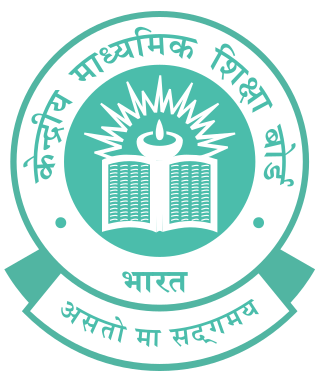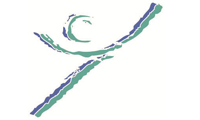Cochin Refineries School is a higher secondary school situated in Kochi, Kerala, India. The school was relocated to its new campus near Vandipettah, Puthencruz on the 2nd of December, 2019.
The British School New Delhi is an independent, multicultural, English Medium, co-educational international school. This not-for-profit school offers the National Curriculum of England adapted to an international context, the EYFS programme, the IGCSE and the IB Diploma Programme. With over 1,200 students from 66 nationalities, the school provides student-centred education in a safe, stimulating and multicultural environment.
Ernakulam District is a district of the state of Kerala in southern India.
Neerja Modi School (NMS) is a private co-educational K-12 day cum boarding school in Jaipur, Rajasthan, India. The school has been built by Shri Modi Shikshan Sansthan and is one of the most sought-after schools in the country with campuses spread across Rajasthan.
Indian Central School is a progressive Senior Secondary Public School affiliated to the Central Board of Secondary Education, Delhi. This School is also a member of the Council of CBSE affiliated schools in the Gulf and shares expertise in the cultural, literary and educational activities.

St. Don Bosco's College is an English Language college in Lakhimpur Kheri, Uttar Pradesh, India.
VIBGYOR Group of Schools is a chain of schools, the first of which was established in 2004 in Goregaon, Mumbai, India. Under the leadership of Rustom Kerawalla, Founder Chairman of the Institution, the VIBGYOR Group has opened 40 schools in fourteen major cities.
One of the newly formed states in India, Chhattisgarh covers an area of 135,194 km2. It was recognized as a state on 1 November 2000. The education scenario in Chhattisgarh is not very remarkable as it lacks proper educational infrastructure. However, the state government has launched several programs for enhancing the academic scenario of the state. The overall growth in the literacy rate has been possible due to the persistent efforts of the state government. According to the 2001 census report, Chhattisgarh had a literacy rate of 65.18% which included male and female literacy rate of 77.86% and 52.40% respectively. Special importance is given to the education of women and students belonging to the underprivileged section of the society. The capital city Raipur is the main center of higher education in Chhattisgarh. It houses some of the most important departments of education in the state.

The Central Board of Secondary Education (CBSE) is a national level board of education in India for public and private schools, controlled and managed by the Government of India. Established in 1929 by a resolution of the government, the Board was an experiment towards inter-state integration and cooperation in the sphere of secondary education. There are more than 27,000 schools in India and 240 schools in 28 foreign countries affiliated to the CBSE. All schools affiliated to CBSE follow the NCERT curriculum especially from class 9 to 12. The current Chairperson of CBSE is Nidhi Chibber, IAS.
The community of Indians in Kuwait includes Indian expatriates in Kuwait, as well as Kuwaiti citizens of Indian origin or descent. According to the Indian ministry of external affairs, there are around 1,020,000 Indians as of 2020. The majority of these originate from the south Indian states of Kerala, Andhra Pradesh, Telangana, Tamil Nadu, with the former constituting for 66% of the population of Indian nationals.

Al Noor International School is a selective private school in Bahrain founded on September 6, 1993, by private investors. The school teaches over 3000 students from more than 40 countries, mainly the United States, the United Kingdom, Bahrain, India, and Pakistan. It started with a programme of classes for primary levels in the district of Mahooz, prior to its relocation to the island of Sitra. It currently caters to the educational needs of students from over than 40 countries and follows a curricular program made up of three types: British, Bahraini, and Indian.

Khalil Gibran School (KGS) is a Moroccan and British English International School in Rabat, Morocco founded in 1986 by Fouad Lyoubi. The school is named after Lebanese artist, poet, and writer Khalil Gibran. KGS caters to children from ages 4 to 18 years old. The curriculum is a combination of Moroccan and British programs offering a fully tri-lingual, education designed to prepare students for the global challenges of the 21st century. KGS is licensed by Cambridge University International Examinations (CIE) in collaboration with the British Council. In 1999, KGS was the first school in the Kingdom to offer the British International General Certificate of Education qualifications (IGCSE). The school is situated in the Soussi suburb of Rabat.
Government Senior Secondary School Mamring, East Sikkim is a government, co-educational, English medium school situated at Mamring near Pakyong in East district of Sikkim, India. Established in 1952, the school currently runs from LKG up to Senior Secondary level.
Gulf Indian School (GIS) is an English medium school in Fahaheel, Kuwait. It is operated by the Al-Faisal Educational Est. Co. The Gulf Indian School, Kuwait is recognized by the Ministry of Education, Kuwait. It is a member of the 'Council of CBSE Affiliated Schools in the Gulf'. The school was established in 1993. It has classes from Kindergarten to class XII and the medium of education is English.

The National Institute of Open Schooling (NIOS), formerly National Open School, is the board of education under the Union Government of India. It was established by the Ministry of Human Resource Development of the Government of India in 1989 to provide education to all segments of society under the motive to increase literacy and aimed forward for flexible learning. The NIOS is a national board that administers examinations for Secondary and Senior Secondary examinations similar to the CBSE and the CISCE. It also offers vocational courses after the high school.
Indian Educational School (IES) is a school affiliated with Central Board of Secondary Education situated in Jleeb Al-Shuyoukh, Kuwait. It was founded in 2006, and is one of several CBSE affiliated schools in Kuwait.





